The latest Young Women’s Trust annual survey shows that young women are carrying a heavy burden of worry about their finances, work and their futures, compared to young men.
They’re more likely to be struggling financially, trapped in jobs they don’t enjoy, and unable to move out of the family home and live their lives as they want to.
At work, young women are feeling much less supported than young men to pursue their ambitions and get where they want to be.
This initial snapshot from our 2024 annual survey shows the scale of the stresses and strains that young women are coping with during the ongoing cost of living crisis.
Our full survey release, coming later in the year, will delve into what’s going on for young women in workplaces to cause this, and what can be done about it.
Financial worries
Young women continue to be experiencing more financial difficulties than young men.
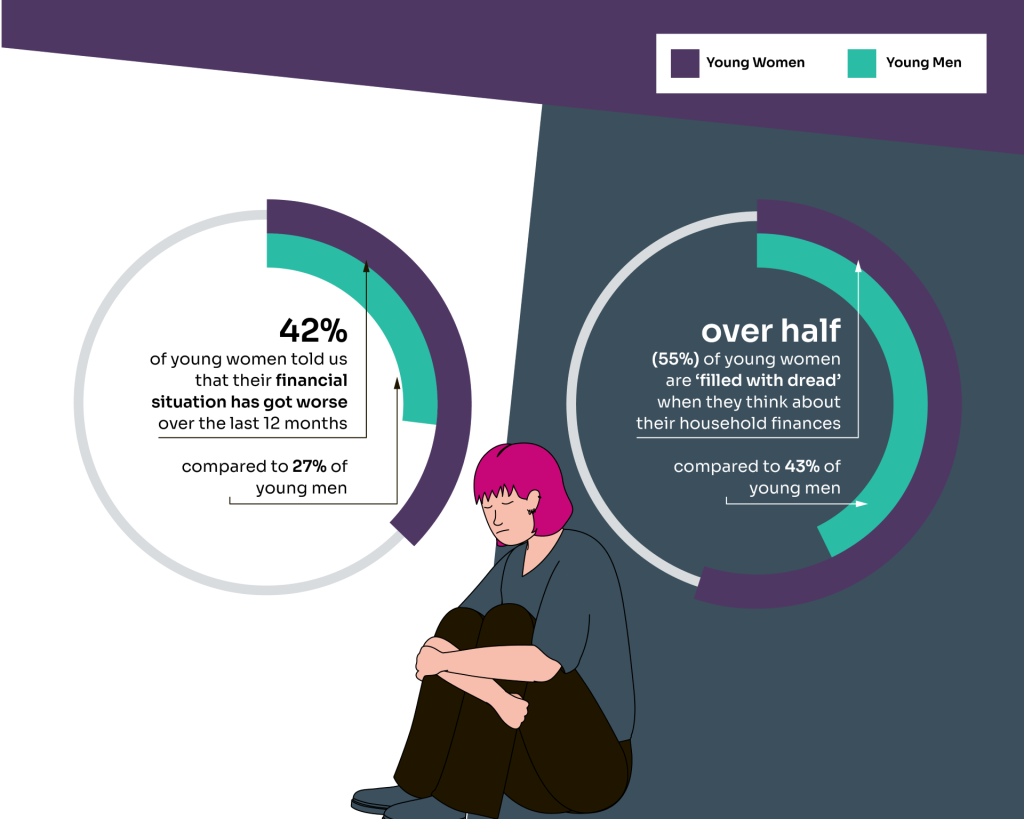
They continue to be more exposed to the cost of living crisis than young men, because they’re paid less and have less of a financial buffer.
77% of young women agree that the increased cost of living has made things financially difficult for them, compared to 62% of young men.
This means young women are more likely to be going hungry and falling behind on bills. 10% of young women have used a food bank for the first time in the last 12 months.

And young women are more likely to be forced into debt.
- Over a third (36%) young women have taken on new or additional debt in the last 12 months, compared to just under 1 in 3 (28%) of young men.
Because they have less money in their pockets, young women can’t save as much as their male peers. This has a knock-on effect on their future finances and living situations – for example, moving out of home or owning a property will be harder and take longer.
- Over a third (37%) are not able to put a little cash aside each month to save, compared to less than 3 in 10 (28%) young men.
Housing
Young women are spending a bigger proportion of their incomes on housing (leaving less money for other things), or are finding it harder to move out of home.
16% of young women have been unable to move out of their family home because of the increased cost of living, compared to just 10% of young men.
Feeling stuck
Financial pressures are contributing to young women feeling stuck and unable to move forward in life.
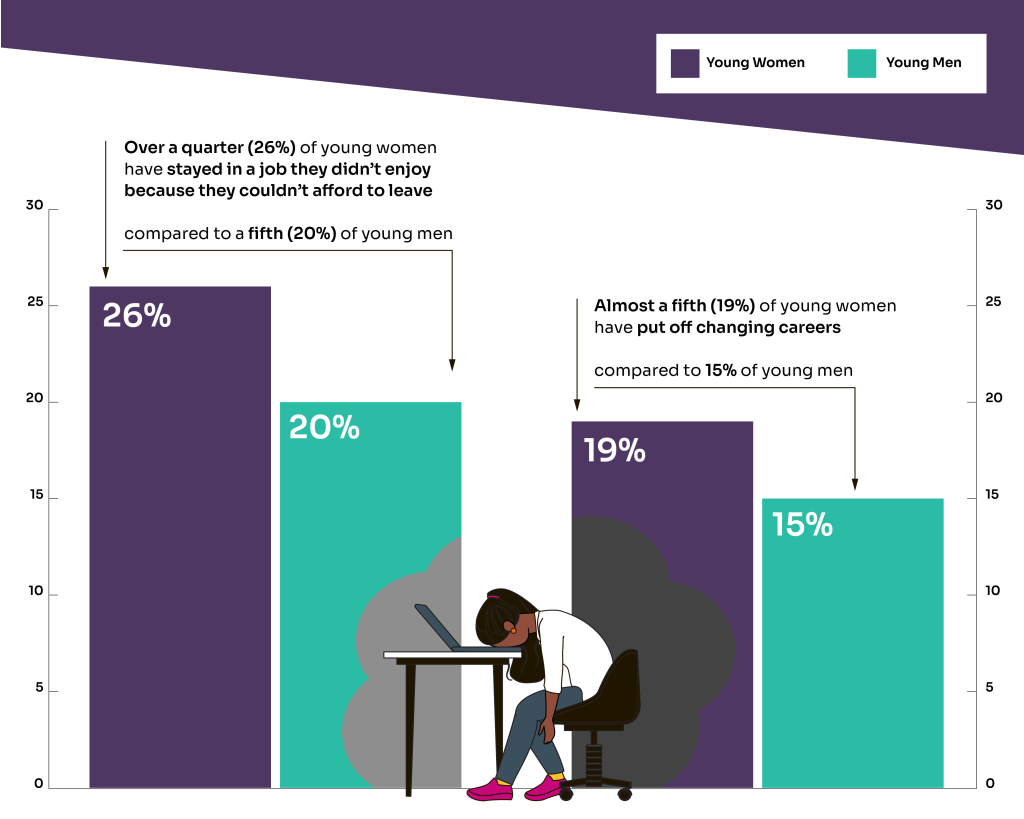
Mental health
All of this is affecting young women’s mental health.
Almost a fifth (18%) of young women described their current mental health as ‘poor’ or ‘very poor’.
Work
Young women are less likely than men to be thriving at work.
Just over half (56%) of young women told us that they feel optimistic about work, compared to 64% of young men.
- 11% of young women told us that they don’t feel safe at work, compared to 9% of young men.
Support
Despite young women having many more financial and employment worries than men, they are much less likely to have the support they need at work and with their finances.
56% of young women told us that they have the support they need to progress in their careers, compared to 64% of young men.
- 41% of young women are worried about not having the support they need in their job, compared to 36% of young men.
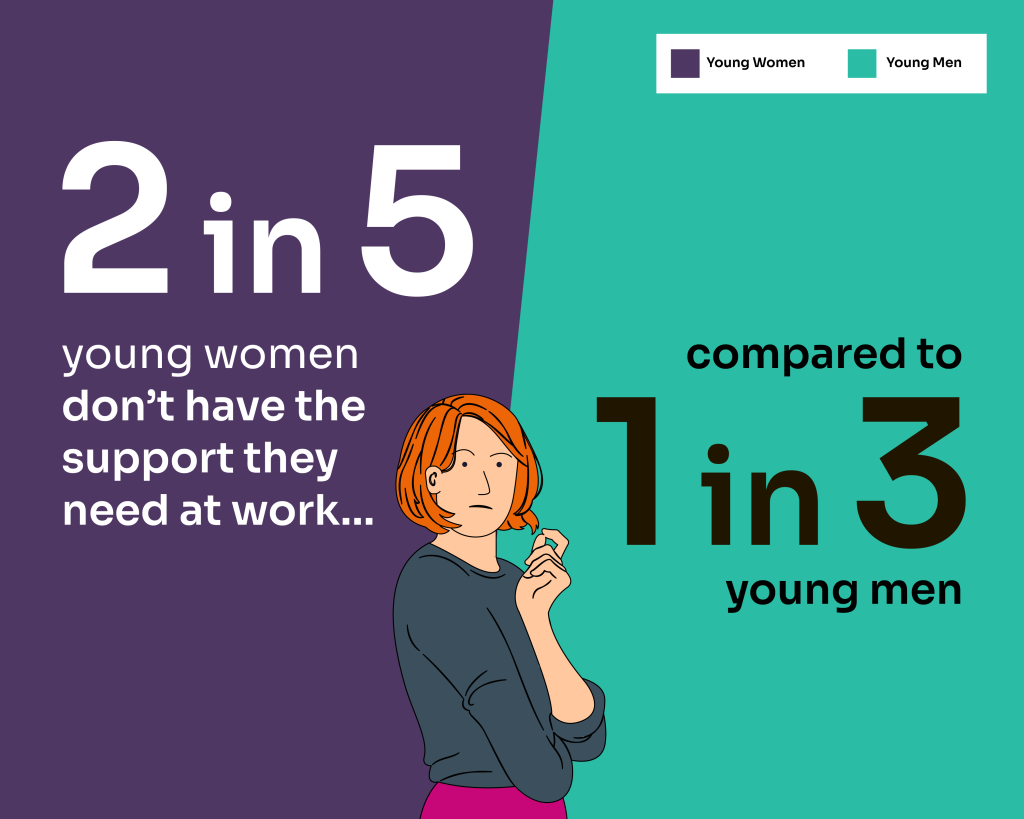
Less than half (49%) of young women know where to get support to manage their finances, compared to almost three fifths (61%) of young men.
Quality of life
Unsurprisingly, being harder up means young women are less able to live their lives the way they want to and do those things that make life feel a bit brighter.
Over a quarter (27%) of young women say that their standard of living has got worse over the last 12 months, compared to 22% of young men.

Hope for the future
Young women are feeling much less hopeful than their male counterparts about the future.
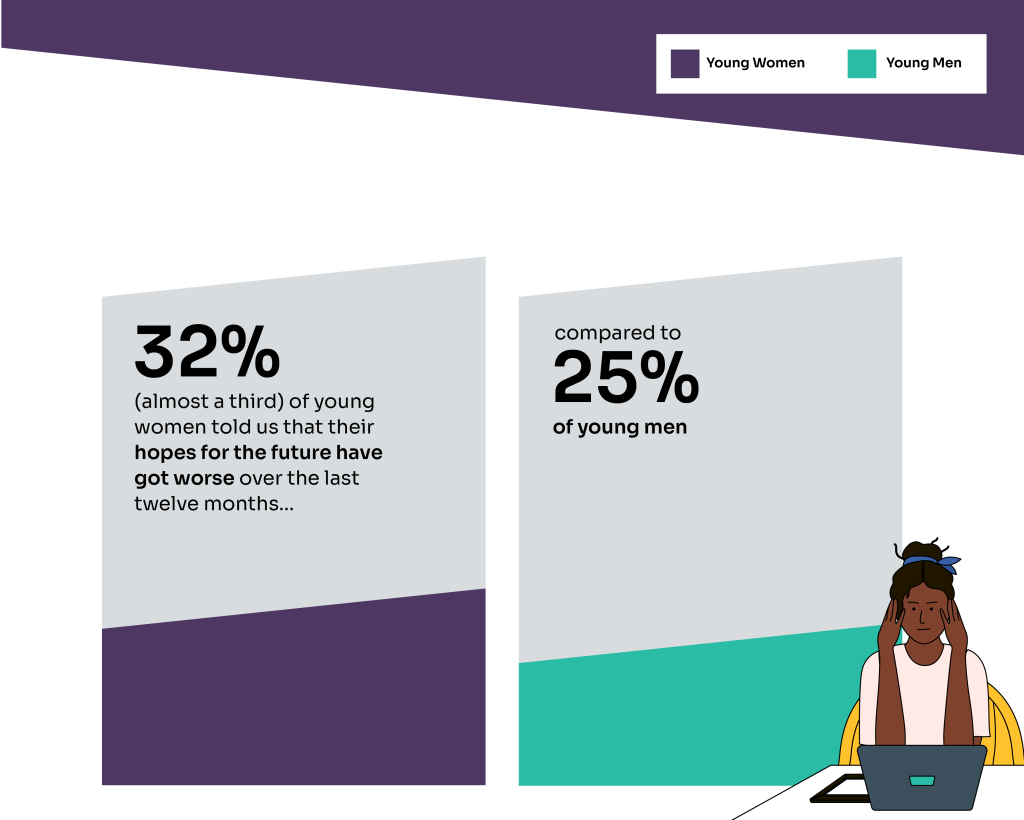
Reasons to be optimistic?
Although too many young women are in dire financial situations, some young women seem to be feeling slightly better about the cost of living compared to last year – particularly those with children. We hope this suggests that the impact of the cost of living crisis may have peaked.
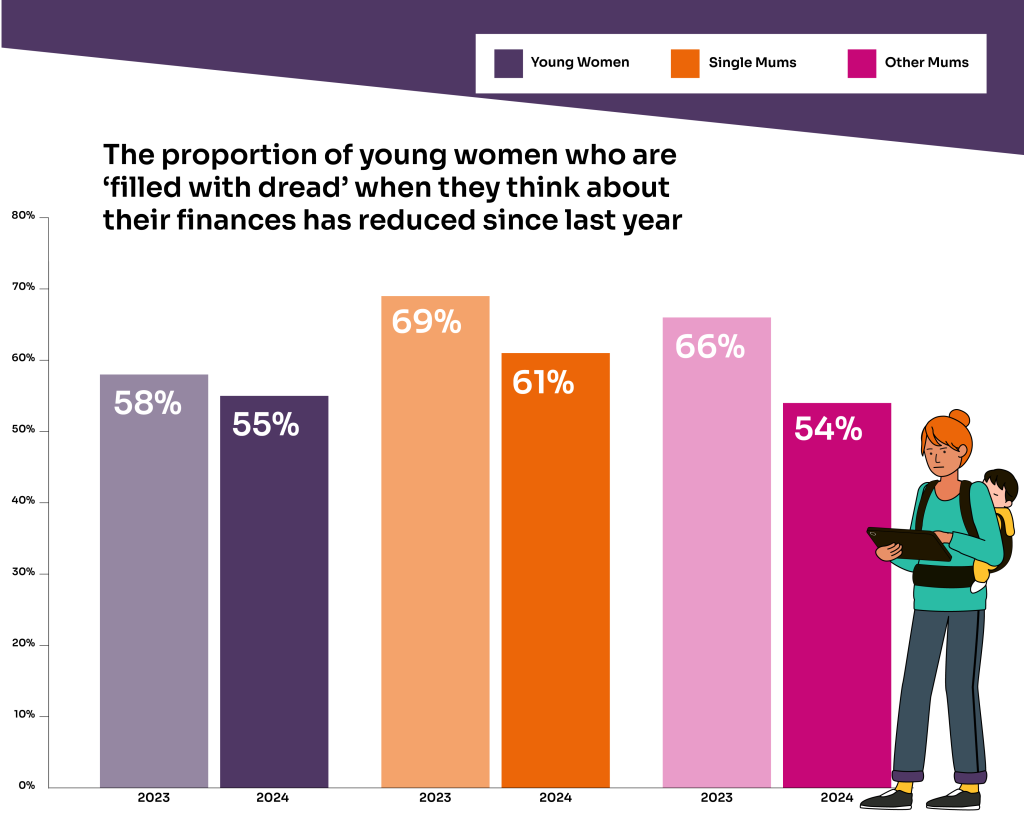
Young women are also feeling much more confident in the government to listen to and respond to their needs.
In 2023, over half (55%) of young women had little or no trust in the government to listen and respond to their needs. This has dropped to just over a third (34%).
What’s needed?
It’s clear that young women need much more support – both within the workplace, to help them progress, and with their finances.
But no amount of financial information and advice will help if young women fundamentally don’t have enough money to cover the essentials of life. Targeted support to raise young women’s incomes is needed, including:
- Ensuring the minimum wage genuinely covers the cost of living, and ensuring 18-20 year olds receive the same as older workers.
- Ensuring benefits always cover the essentials.
- Tackling the gender pay gap, and taking stronger action against employers who discriminate.
Young women have produced their own manifesto for an equal world of work, setting out what needs to be done.
Methodology
We spoke to a representative sample of 3,977 young women (aged 18-30) in England and Wales, and a comparison group of 1,051 young men. Fieldwork was carried out between 22nd July and 3rd August 2024. The overall sample of young women contains 57 responses from trans young women and 51 responses from people who identify as non-binary. For the sake of brevity, we refer to this group as ′young women′ throughout the report.
The 2023 survey used as a comparison was carried out between 19th June and 1st July 2023 with 4,061 young women aged 18-30 and 1,049 young men. The survey included 73 responses from trans young women and 64 people who identified as non-binary.

